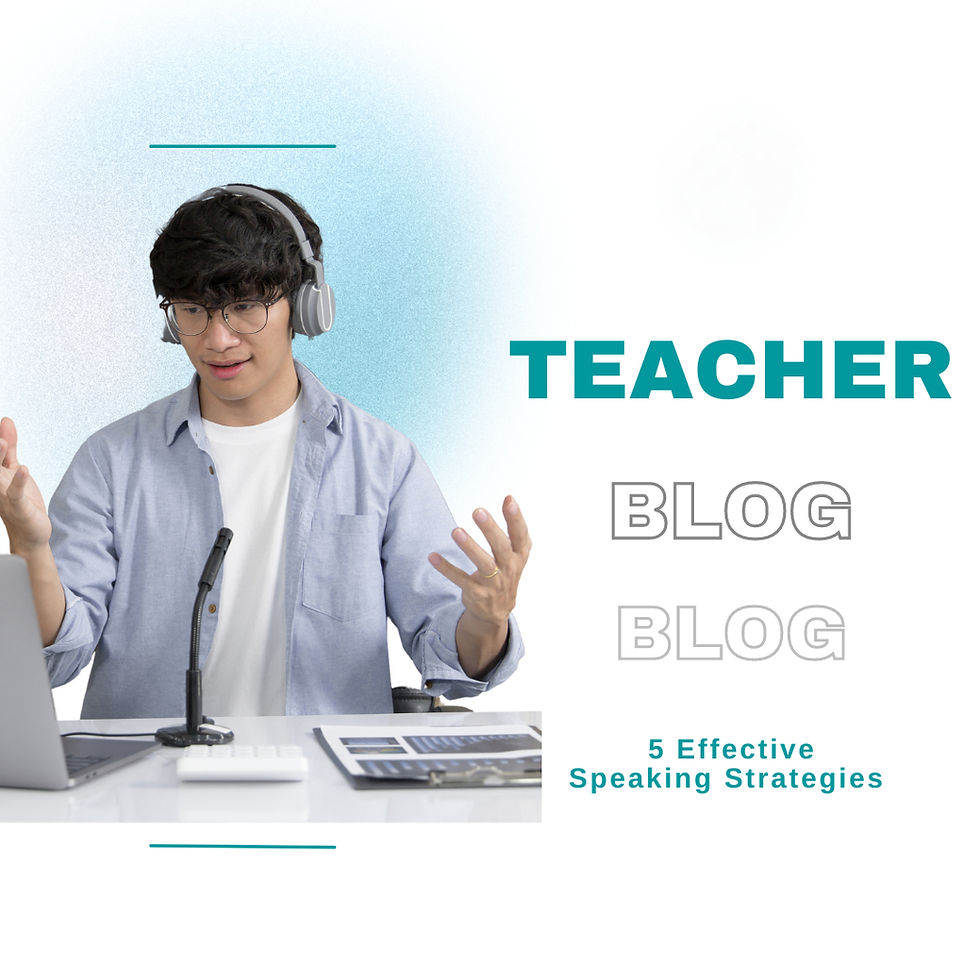5 Incredibly Effective Speaking Strategies
- Nastassia Acevedo
- Feb 25
- 2 min read
Updated: 1 day ago
As teachers and educators, we are in a constant state of flux. The educational landscape is changing so fast that it is hard to predict what our classrooms will be like in the near future. Traditional ways of teaching are taken backstage while new emerging methodologies are thrust to the forefront.
Here are some great strategies you can implement in your classroom right now to improve your students speaking skills.

Incorporate more small group discussions
Whether it's for a warm-up exercise, a comprehension check-up, or an end-of-class discussion, try to incorporate discussion-based pair work and group work as often as possible. This approach allows the student to practice speaking with another person and fosters a learning environment similar to the real world.
Don't give the answer immediately
When your students ask questions, don't immediately give them the answer. Instead, ask your class what they think the correct answer is or put students into pairs to discuss what the correct answer might be. If you're teaching a student one-on-one, you can first ask your student what they think the answer is. Allowing your students to discover the correct answer on their own will get them talking and help them become more independent.
Provide students with positive feedback
After a speaking task, be sure to provide constructive and positive feedback. Encouragement will increase your student's confidence and make them happier students!
Give students options and choices
When assigning a speaking task, provide your students with choices. If your students can choose topics they are interested in and passionate about, they will feel more comfortable speaking about that topic.
Create a friendly and safe environment
Create an environment where students aren't afraid to make mistakes. Lead by example when you make a mistake and remind your students often that they don't have to be perfect. Use humor too! Jokes will help to put your students at ease.
Speak as little as possible
At first glance, this may seem odd, but try to speak as little as possible. As a teacher, you are the language facilitator. Your job is to check, clarify, and empower.
Remember to always experiment in your classroom and find what works best for you and your students.

Comentarios